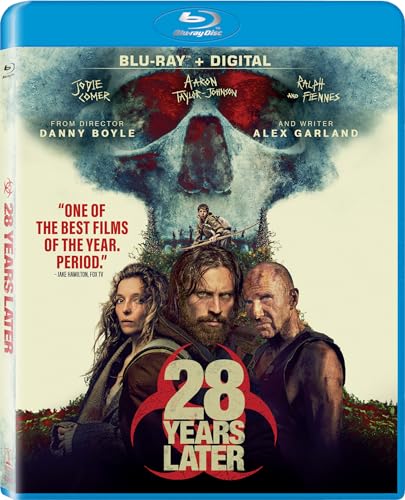
Let’s be honest. Most legacy sequels get it wrong.
They lean too hard on nostalgia. They undo their own mythology. Or they try so desperately to feel “modern” that they forget what made the original film resonate in the first place.
But then comes 28 Years Later, and suddenly… we’re reminded of what a great sequel can actually do. It’s haunting, beautiful, brutal and most importantly, it evolves the franchise rather than simply echoing it. This movie doesn’t just bring the series back. It shows how every legacy sequel should be done.

The Trap Most Legacy Sequels Fall Into
Revisiting an iconic franchise is tempting, but often turns into a mess. Just look at recent examples:
- The Matrix Resurrections got lost in meta-without-meaning.
- Terminator: Dark Fate rewrote timelines but lost emotional weight.
- Beetlejuice Beetlejuice had nothing new to say and no story to justify its return.
These sequels spend more time referencing themselves than building something new. They end up talking to the past instead of speaking to the present.
28 Years Later doesn’t fall for that trap.

A New Breed of Infected
The infected in this film are nothing like the cookie-cutter monsters we’ve seen before. Each one feels distinct like a person who had a life before the outbreak. That sense of individuality hits harder, especially because the movie uses them sparingly.
This isn’t a full-throttle zombie movie. It’s slow, deliberate, and atmospheric. So when the infected do show up, it’s terrifying and impactful.
The introduction of the Alpha Infected is one of the smartest moves the franchise has made. You instantly feel that the virus has evolved. There is a scene where the Alpha sprints full-speed through water? Pure cinematic panic. It’s one of the most intense horror-action sequences in recent memory.

Beauty Meets Dread
Visually, the film is stunning. Quiet landscapes. Rolling green hills. Nature reclaiming the world.
But that same beauty becomes a source of terror when infected burst through those peaceful settings. The contrast between calm and chaos is masterfully used which is a reminder that horror often hides behind the serene.

Why Spike Works
What makes this movie hit even harder than its predecessors is Spike, the emotional anchor of the story. Just a kid trying to make his father proud and protect his mom, Spike gives the film its soul.
You watch him grow from timid and unsure to a hardened survivor. His evolution feels earned, and it gives the film a heart that most apocalyptic thrillers don’t even attempt.
This isn’t just a zombie movie. It’s a character story first, and that makes everything else hit harder.

Not Everything’s Perfect
The one area where the film stumbles a bit? Editing.
Some transitions are smooth and emotionally impactful. Others feel jarring and chaotic. While this might be a creative choice to mirror the world’s instability, it can occasionally pull you out of the moment.
But thankfully, the film’s grit, tension, and relentless will to survive keep it grounded in what matters.
A World That Kept Moving Without Us
The brilliance of 28 Years Later is that it feels like the world never stopped. Even though it’s been over a decade since 28 Weeks Later, the movie drops us back into a living, breathing ecosystem of fear, decay, and survival.
By the time the credits rolled, one thing was clear:
I didn’t want to leave.
Not just because of Spike but because this world has more stories to tell. It doesn’t need to cling to the past. It can move forward. And we want to follow it.

The Legacy Sequel Blueprint
Here’s what 28 Years Later got right and what every legacy sequel should learn:
Stay true to the original tone
Don’t overuse nostalgia. Like ever
Expand the world without overexplaining
Introduce new characters with clear motivations
And most importantly… have something to say
This is how you bring a franchise back. This is how you earn it.
RATHER WATCH?
![28 Days Later [Blu-ray]](https://m.media-amazon.com/images/I/51TMIu3qtwL.jpg)
![28 Weeks Later [Blu-ray]](https://m.media-amazon.com/images/I/518XoHgiu0L.jpg)
